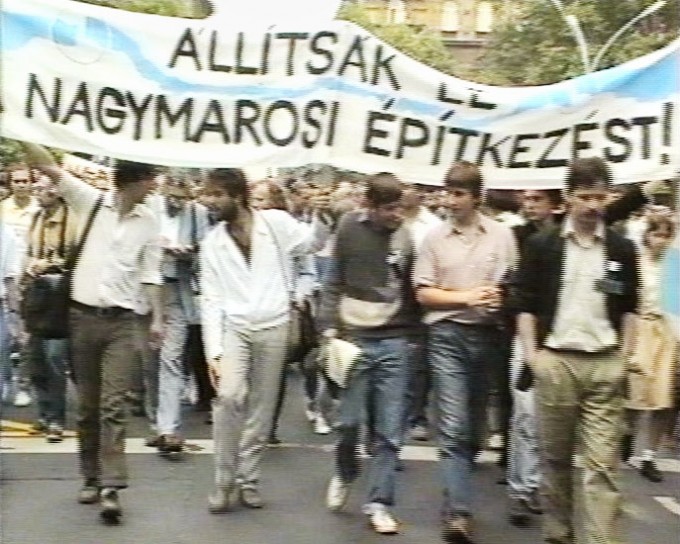
Video still: FEKETE DOBOZ “A Műtárgy” (The Object)** (1988)
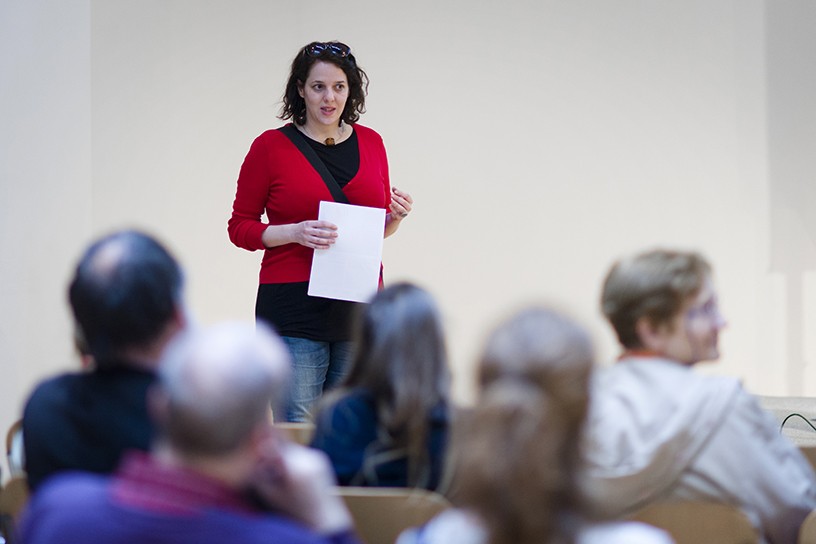
Opening address by Katalin Székely, Vera and Donald Blinken Open Society Archives
Photo: Daniel Vegel, 2016.
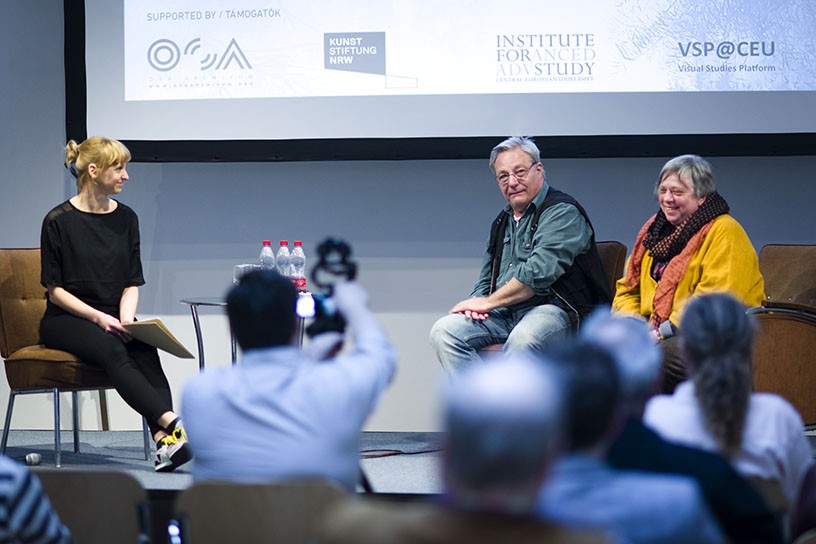
Szilvia Nagy, Ádám Csillag and Márta Elbert (Fekete Doboz)
Photo: Daniel Vegel, 2016.
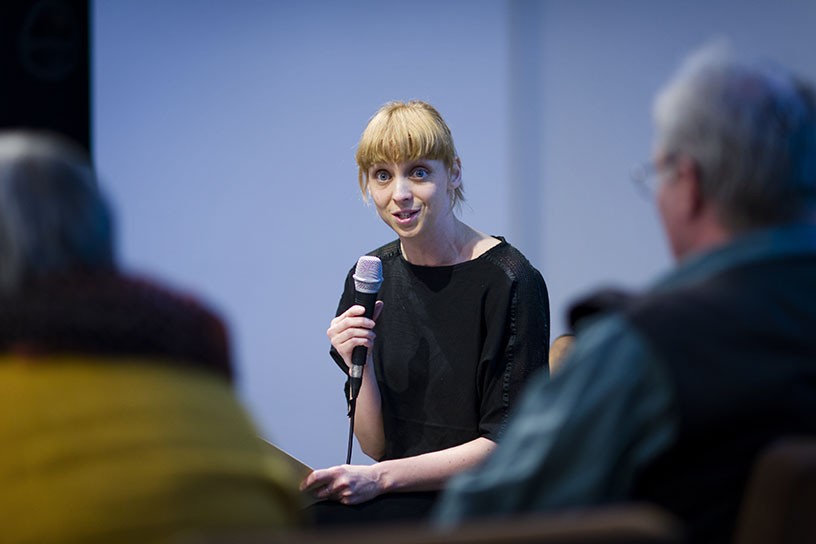
Szilvia Nagy
Photo: Daniel Vegel, 2016.
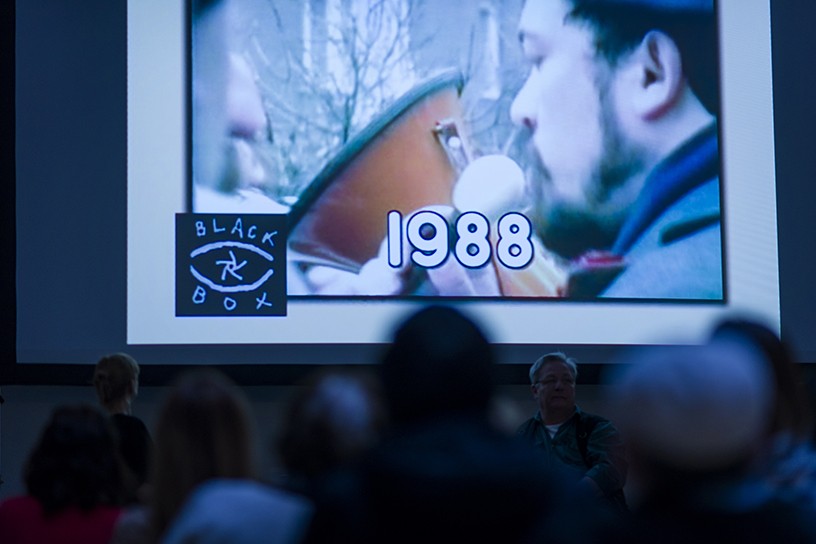
Screening of the documentary short film FEKETE DOBOZ "Civil technikák" (1988)
Photo: Daniel Vegel, 2016.
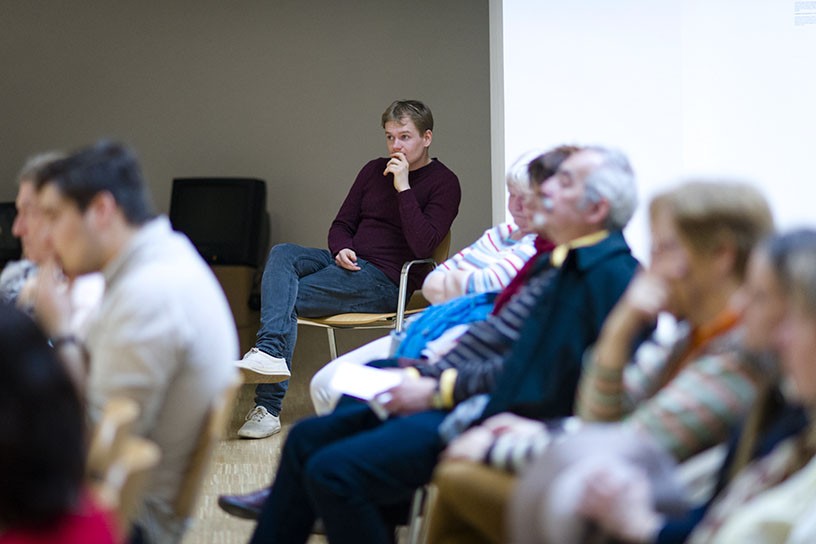
Screening of the documentary short film FEKETE DOBOZ "Civil technikák" (1988)
Photo: Daniel Vegel, 2016.
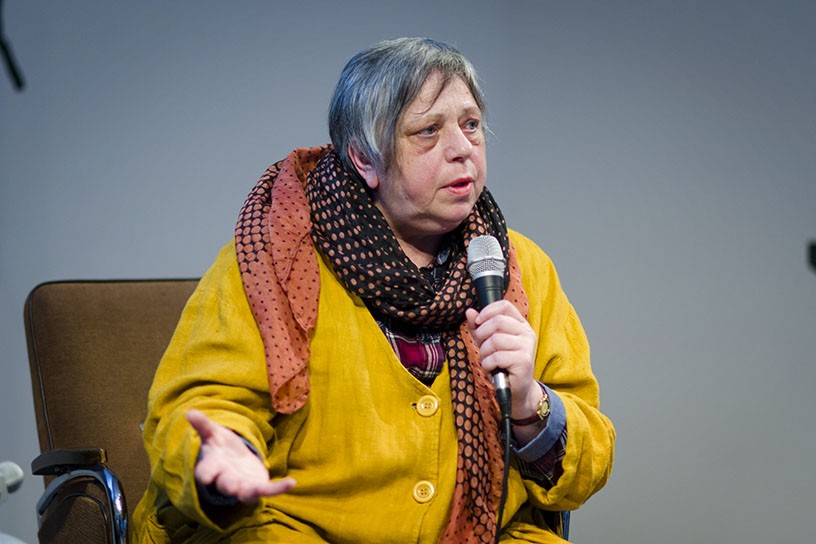
Márta Elbert (Fekete Doboz)
Photo: Daniel Vegel, 2016.
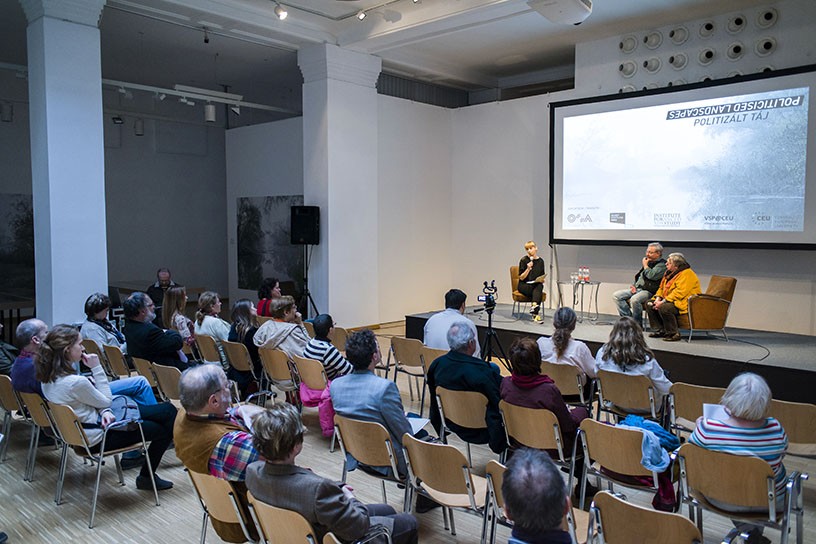
Photo: Daniel Vegel, 2016.
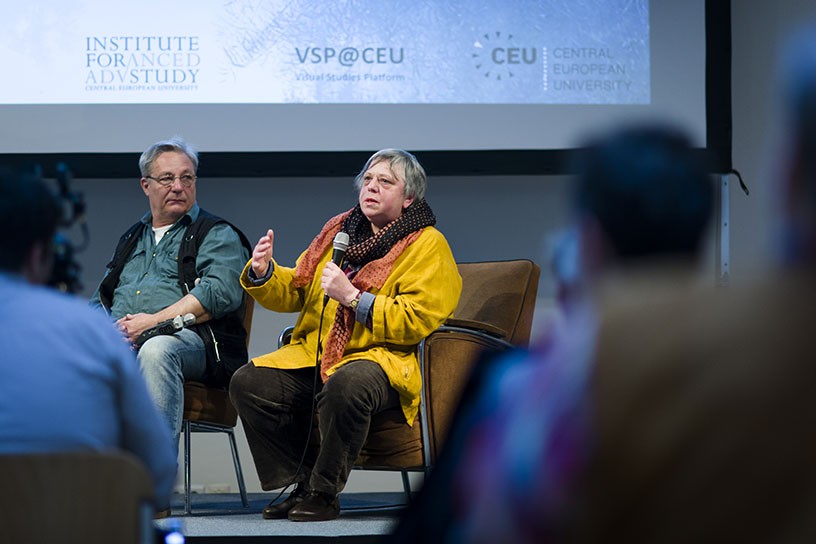
Ádám Csillag and Márta Elbert (Fekete Doboz)
Photo: Daniel Vegel, 2016.
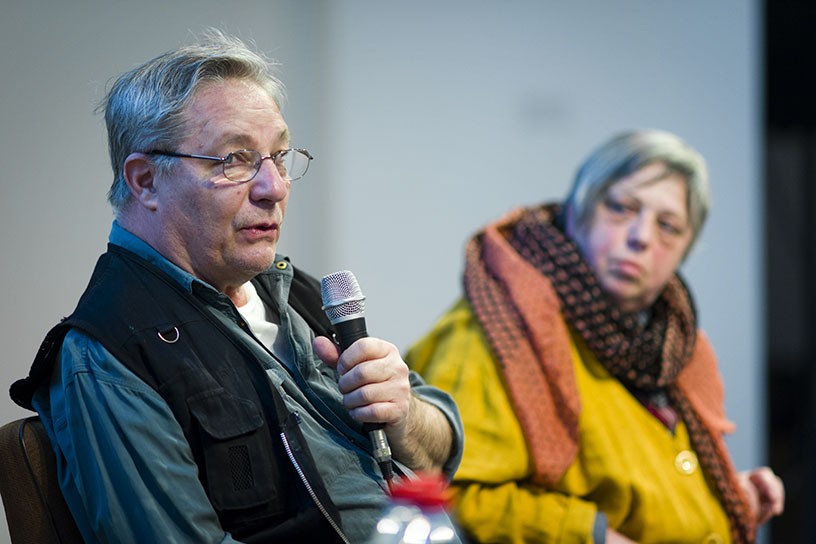
Ádám Csillag and Márta Elbert (Fekete Doboz)
Photo: Daniel Vegel, 2016.
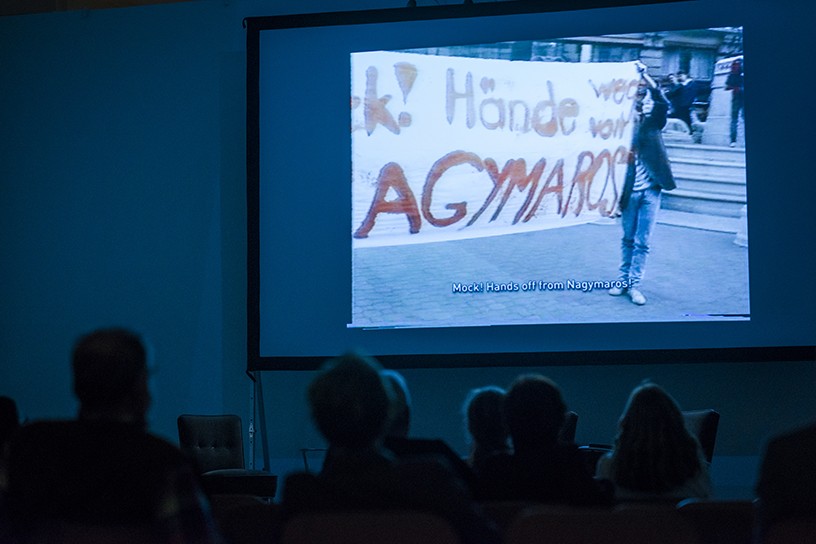
Film screening: FEKETE DOBOZ “A Műtárgy” (The Object)** (1988)
First screening with newly added English subtitles
Photo: Daniel Vegel, 2016.
Wednesday, 30 March 2016, 6:30 p.m.
Filmscreening: FEKETE DOBOZ “A Műtárgy” (The Object) (1988)
Márta Elbert (Fekete Doboz, director) in conversation with Ádám Csillag (documentary filmmaker), Moderator: Szilvia Nagy (in Hungarian)
The film is shown in Hungarian with English subtitles. The discussion will be in Hungarian.
Galeria Centralis of Vera and Donald Blinken Open Society Archives
Arany János utca 32, 1051 Budapest
An event of the POLITICISED LANDSCAPES program.
The second issue of Fekete Doboz' video journal, The Object (vol. 1, issue 2),
will be screened for the first time with English subtitles.
The Black Box video workshop was founded by Judit Ember, Márta Elbert, István Jávor, András Lányi and Gábor Vági in 1987. The documentary video journal produced its samizdat publications on VHS. As a civil organization they followed the events of the regime change and the National Round Table Negotiations.
The documentary, filmed in the summer of 1988, shows the first mass demonstration against the Bős-Gabčíkovo Dam System, the transformation of the beautiful Danube landscape into barren desert, the efforts of archeologists to save artifacts before the fields were to be flooded, and an interview with Professor Béla Lipták who argues against the dam’s construction.
Before the film there will be a discussion with Márta Elbert and Ádám Csillag on the documentation of political and social events in the past and present, the documentarist-activist approach and the role of un-copyrighted photos and films in democratic movements and free speech.
MÁRTA ELBERT
After working for 20 years as both unit and production manager, Elbert became one of the founding editors of Black Box, which provided the most important video-documentary workshops on the political and social events during the regime changes in Hungary and Eastern Europe. She was the editor of the five-part film compiled from the recordings of the Oppositional and National Round Table negotiations. She was the editor, reporter and producer of close to 130 Black Box films as well as the founder of the Roma Media School where she taught too. She was awarded the Pulitzer Memorial Prize.
ÁDÁM CSILLAG
Ádám Csillag is an outstanding Hungarian documentary filmmaker. He graduated from the University of Theater and Film Arts in Budapest in 1984 and ever since he has worked as a documentary film maker. He first worked at the Balázs Béla Stúdió, where he made the successful documentary, Dunasaur. From 1989 he worked for Hungarian Television, where he filmed the Velvet Revolution in Prague. Csillag participated in the MTV Opál Productions in 1990, developing programs on human rights, minorities, and social issues for television. Ádám Csillag is a member of the Ethics Committee for the Association of Hungarian Film and TV Artists, and he is also on the Board of Duna Kör.